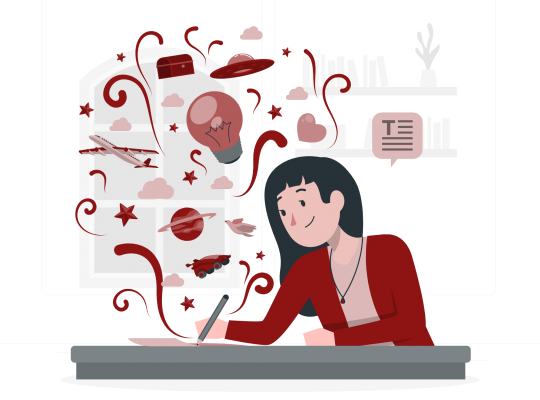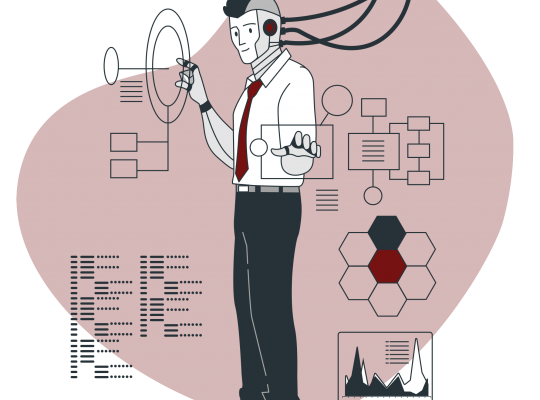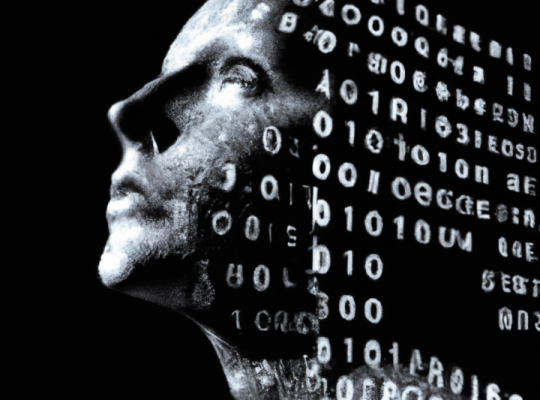Introduction
The 21st century is an era of immense change and innovation.
Technology is changing at an incredible pace, and this has had a major impact on education.
One of the most important changes that has taken place in digital learning is the way we interact with information.
We now have access to a wealth of information at our fingertips, and this has made learning more enjoyable and interactive.
There are many advantages to digital learning, including the ability to learn more efficiently and more easily than ever before.
Another benefit of digital learning is that it is more convenient than traditional learning methods. It is possible to learn anywhere at any time, using many different devices.
Digital learning allows students to access educational materials from any device or computer. This is an excellent way to supplement traditional classroom learning.
It is also a useful method that can be used to support and enhance student learning outside of the classroom environment increasingly with the use of Artificial Intelligence educational tools.
Artificial Intelligence tools can be used by teachers to help engage students and improve learning outcomes. These tools can be a useful tool in the classroom because they allow students to develop critical thinking skills and engage with the curriculum in a meaningful way.
There are several different several commonly used artificial intelligence tools that can be used to create content, assess learners and provide feedback. One of the most popular tools is the adaptive learning engine. This is a technology that is designed to monitor student progress and adjust course content accordingly to provide students with a personalised learning experience.
AI assistants such as Cortana, Socratic, IBM Watson and Apple Siri can provide personalised tutoring services to help students with tasks such as research, answering questions and doing homework. These apps can be useful for both teachers and students as they provide access to a wide range of educational resources and useful applications that can be used both inside and outside of the classroom.
Text to speech technology allows users to listen to a digital copy of a book or document and have the text read aloud to them. This type of technology can help to improve the reading comprehension of students as it allows them to use their imagination to better understand what they are reading.
What is artificial intelligence?
Artificial intelligence can be defined as the development of computer systems that exhibit human-like intelligence and are able to learn and perform tasks on their own with minimal human intervention. The benefits of using artificial intelligence in education include the following:
• The ability to provide personalised learning experiences to students based on their specific learning needs and preferences.
• The ability to customise learning environments for different groups of students and to cater to their learning needs by designing more engaging and effective learning experiences.
• The ability to provide real-time feedback and feedback on the progress and performance of students based on data gathered from tests and assessments.
• Artificial Intelligence can analyse real-time data collected from student performances during class and in tests to assess their strengths and weaknesses and identify areas of improvement. For example, teachers can use AI-enabled machines to automatically grade papers and homework assignments and identify areas in which students are having trouble so that they can provide more guidance. Teachers can also use AI-assisted software to provide instant feedback to students on their work and help them improve in areas where they are struggling. This will help to improve their performance and boost their confidence in the classroom.
Artificial intelligence can be used to enhance the learning experience of students by providing them with personalised learning and customised environments that can cater to their unique learning styles and learning needs. It can also help them develop critical thinking skills, improve their communication skills, and learn more effectively at their own pace so they can reach their full potential and become successful
What are the limitations of artificial intelligence in education?
AI is not a replacement for human teachers.
AI is not yet able to teach complex concepts like creativity, critical thinking, and social skills.
Since AI cannot interact with students in a natural way, it can’t help students with their emotional problems.
What are some ethical issues associated with the use of artificial intelligence in education?
Many people are concerned about the use of AI in education due to the following ethical issues:
- Privacy
- Data bias
- Potential for discrimination and exclusion
- Impacts on teaching and learning
There are several ethical issues with AI in education that should be considered. One of these issues is the fear that AI will replace teachers in the future. This fear could be alleviated if AI was used as an assistant to teachers, rather than a replacement. Another issue is that not all students have access to this technology, which could lead to some students being left behind and not meeting their full potentials.
How can artificial intelligence be applied to enhance online learning programs?
While artificial intelligence has not been fully adopted in the education system, it is gradually being integrated into online learning programs. AI can be applied to enhance online learning programs by providing students with personalised feedback and insights on their progress.
Artificial intelligence can also be used to provide a more interactive experience for students. It can help them understand concepts better by answering their questions as they go through the lesson, or provide them with additional information on a topic they are struggling with.
How can artificial intelligence be used to enhance teacher effectiveness and productivity?
Artificial intelligence can be used to enhance teacher effectiveness and productivity by providing them with a virtual assistant. This virtual assistant would help them to complete tasks that they find tedious, such as grading essays, or it could even help them to complete tasks that they find overwhelming.
The use of artificial intelligence in the classroom is not new. But now with the rise of machine learning and deep learning, we are seeing more and more examples of how AI can be used in education.
Teachers are often faced with the challenge of having to create lesson plans and content for their students. This can be a very time-consuming process. AI can help teachers by assisting them in coming up with lesson plan ideas and content. This will allow them to spend more time on teaching and less time on creating content for their students.
Furthermore, AI can also be used to provide personalised feedback to the teacher’s students. This will allow the teacher to better understand each student’s strengths and weaknesses so that they can better teach them what they need to know in order for them to succeed in school.
Is artificial intelligence the future of education?
Artificial intelligence is already changing the way we live and work. It has also shown to be a powerful teaching tool for students.
Artificial intelligence is now a part of our lives. It is being used in various industries and sectors to make them more efficient and productive. There are many use cases of AI writing tool, the most common one being the use of AI assistants in education.
AI is not a replacement for teachers, it’s their partner in the classroom. AI can help teachers in many ways, like grading essays or giving feedback on their performance. It can also keep track of student data, provide personalised learning plans and monitor students’ progress.
AI has been making a huge impact on how we learn. The use of intelligent systems, such as AI assistants, improves the quality of education by providing personalised learning and adaptive instruction to students.
The future of education is not set in stone yet as there are many debates about whether or not artificial intelligence will replace teachers or not. But there are some who believe that artificial intelligence can be used as a supplement to teachers and help them do their job more efficiently.
Artificial Intelligence Tools
- Content Creation Tools
Essaybot: Free Essay Writing Tool | Essay Typer & Samples
Rytr – Best AI Writer, Content Generator & Writing Assistant
Copy.ai: Write better marketing copy and content with AI
Frase – Best SEO Content Optimization Tool & AI Writer
TLDR This – Article Summarizer & Online Text Summarizing Tool
- Content Referencing
- Content Presentation Tools
Synthesia | #1 AI Video Generation Platform
Pictory – Home of AI Video Editing Technology – Pictory.ai
Narakeet – Create Narrated Videos Quickly!
Online Video Editor | Video Creator | InVideo
Tolstoy | Communicate with interactive videos (gotolstoy.com)
Animated Video Maker Online | Renderforest
Animated videos made easy with VideoScribe | Videoscribe
Designs.ai – Creative work done effortlessly
XR Guru – The Future of Education Is Here
Presentation Software | Basic to Beautiful in Minutes with Beautiful.ai
Remove Video Background – Unscreen
Steve.ai – World’s fastest way to create Videos
Scribe | Visual step-by-step guides (scribehow.com)
Paraphrasing Tool | QuillBot AI
- Assessment Creation
PrepAI – Most Advanced Test Generator
Quillionz – World’s First AI-Powered Question Generator
Question & Answer Generator | Rytr
- Feedback Tools
Cognii – Artificial Intelligence for Education and Training
- Class Support Tools Virtual Assistant
Cognii – Artificial Intelligence for Education and Training
Written by AI (with a tweak here and there) using some of the tools above.





